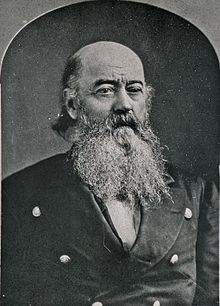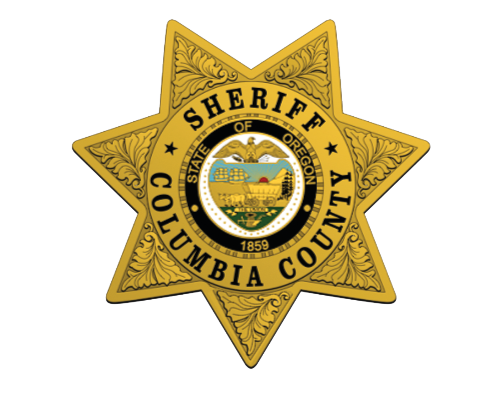History of Sheriffs
 Joseph Meeks, Oregon's First Sheriff
Joseph Meeks, Oregon's First Sheriff The history of the American Sheriff began in 1634 when the settlements in Virginia became well enough established to allow for the replacement of the military regime by a civil government. In 1649, in Jamestown, Virginia, the Sheriff was empowered as the King of England's representative to keep the peace.
Thomas Jefferson once called the office of Sheriff the most important elected office in the county. No matter who sits in the office at any given time, this is a constitutional office with a wide variety of duties and authorities and a tremendous potential for defending the liberties of the people with broad powers. Those powers include the power to arrest, commit to prison, serve as the ministerial officer of the courts, and carry out its directives, including relieving people of property upon court order and their personal liberties upon probable cause. As an elected official, the Sheriff has always had tremendous authority and responsibility for protecting the rights of all.
The first sheriff in Oregon was Joseph Meek (pictured to the right) in 1843, whose jurisdiction was in the area of Washington County. Columbia County was created in 1854 from the northern half of Washington County, and its first sheriff was Benjamin Stevens, who served from 1854 to 1859. R.S. Hattan, Columbia County's 12th sheriff, oversaw the county's only hanging, held on the back steps of the Columbia County Courthouse in 1902.
The Sheriff's Office was in the courthouse in St. Helens for many years. In 2001, the Sheriff's Office moved to its present location on Port Avenue after the old 38-bed jail was deemed too antiquated and inadequate for modern jail requirements. In recent years, the Sheriff's Office has had significant funding problems. In 2014, voters staved off the closure of the County Jail with the passage of an operating levy that helped keep the jail functioning at its 100-prisoner capacity. In 2016, voters renewed the levy to continue funding jail operations.
Timeline of Columbia County Sheriffs
| Brian Edward Pixley | 2019 - Present |
| Jeff Dickerson | 2009 - 2018 |
| Phillip Wayne Derby | 1997 - 2008 |
| Henry Patrick Detloff | 1996 |
| George Ralf Hulit | 1995 - 1996 |
| Bruce Edward Oester | 1983 - 1994 |
| Richard Thomas Tennant | 1974 - 1983 |
| Frederick Alexander Roediger | 1974 |
| Roy Stafford Wilburn | 1962 - 1974 |
| Spencer Lewis Younce | 1959 - 1962 |
| John P Evans | 1958 - 1959 |
| Warren Millard Forsyth | 1953 - 1958 |
| Millard Robert Calhoun | 1937 - 1953 |
| Oscar Gilbert Weed | 1929 - 1937 |
| John Henry Wellington | 1921 - 1929 |
| Henry Eugene LaBare | 1919 - 1921 |
| Edward Chester Stanwood | 1915 - 1919 |
| Clothar Henry John | 1914 |
| Albert Edward Thompson | 1910 - 1914 |
| Martin Adams White | 1903 - 1910 |
| Robert Stephen Hattan | 1900 - 1903 |
| James Nelson Rice | 1896 - 1900 |
| Charles Fremont Doan | 1894 - 1896 |
| Thomas Columbus Watts | 1893 - 1894 |
| George Alexander Massie | 1892 - 1893 |
| William A Meeker | 1888 - 1892 |
| Thomas Columbus Watts | 1884 - 1888 |
| Nathaniel C Dale | 1882 - 1884 |
| William Henry Conyers | 1878 - 1882 |
| James Francis Dart | 1872 - 1878 |
| William Francis Williams | 1870 - 1872 |
| Jackson Preacher | 1866 - 1870 |
| John Rankin Majors | 1864 - 1866 |
| Samuel Allen Miles | 1862 - 1864 |
| James Craig Gilbreath | 1858 - 1862 |
| Benjamin Dyer Stevens | 1854 - 1858 |
